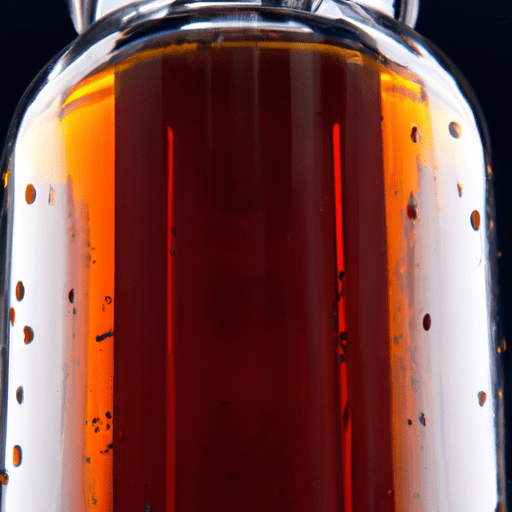The Sweet World of Waffle Syrup
Waffle syrup is the perfect accompaniment to crisp, golden waffles. Its rich and luscious texture, paired with its distinctive flavor, takes breakfast to a whole new level of deliciousness. In this blog post, we’ll dive into the wonderful world of waffle syrup - exploring its taste, versatile uses, nutritional value, and even some fascinating history and facts that surround this delectable condiment.
The Irresistible Taste of Waffle Syrup
Waffle syrup boasts a sweet and indulgent flavor that delights the taste buds. This liquid gold combines the natural sweetness of sugar with a hint of caramel and maple essence. The result is a heavenly concoction that adds depth and character to the already delightful experience of eating a warm waffle. With just a drizzle of this liquid ambrosia, every bite becomes a taste sensation.
Versatility in Cooking
While waffle syrup is most commonly associated with waffles, it is a versatile ingredient that can be used in a myriad of culinary creations. This heavenly syrup is a delightful addition to pancakes, French toast, and even desserts like ice cream, cheesecake, and pastries. Its ability to enhance both sweet and savory dishes makes it a fantastic secret weapon in the kitchen.
Nutritional Value
When it comes to nutritional value, waffle syrup is primarily a source of simple carbohydrates. It provides a quick burst of energy, making it a popular choice for a morning pick-me-up. However, it is essential to consume it in moderation as it is high in sugar and calories. Alternatively, you can opt for healthier alternatives such as sugar-free or low-calorie versions, which don’t compromise the taste.
Fun Facts and Fascinating History
Did you know that waffle syrup wasn’t always associated with waffles? Before the production of maple syrup became widespread, people turned to molasses and honey as sweet toppings for their waffles. It wasn’t until the late 19th century that maple syrup gained popularity and became the go-to choice for syrup enthusiasts.
In the early days, waffle syrup was poured onto waffles purely for its delicious taste. But over time, it also became a symbol of indulgence and luxury. The act of pouring syrup over a stack of waffles became a delightful ritual, and it still holds true for breakfast lovers around the globe today.
Get Creative with Waffle Syrup
If you’re looking to elevate your breakfast experience or add a touch of sweetness to your favorite desserts, waffle syrup is a must-have pantry staple. Experiment with different flavors such as classic maple, buttery caramel, or even fruity options like blueberry or strawberry. Don’t be afraid to get creative in the kitchen - drizzle, dip, or pour waffle syrup to your heart’s content and unlock a world of culinary delight.
In conclusion, waffle syrup is a delectable concoction that adds flavor, elegance, and fun to any dish it graces. Its rich taste, versatility, and the delightful history behind it make it a beloved condiment in many households. So, why not treat yourself to a stack of fluffy waffles with a generous drizzle of golden waffle syrup? It’s the perfect way to start your day with a touch of sweetness.
Note: Enjoy syrup responsibly by being mindful of portion sizes and opting for healthier alternatives when necessary.
Waffle syrup is a sweet condiment commonly used to enhance the flavor of waffles, pancakes, and other breakfast dishes. Here are some interesting facts about waffle syrup:
Origin: Waffle syrup, also known as pancake syrup or maple syrup, has its origins in North America. Native Americans were the first to tap maple trees and process the sap into syrup, which eventually became a popular sweetener in the region.
Composition: Traditional waffle syrup is made by boiling down the sap of maple trees until most of the water content has evaporated, resulting in a concentrated, sweet liquid. Maple syrup is primarily composed of sugars such as sucrose, glucose, and fructose, along with trace amounts of minerals.
Types of Syrup: Maple syrup is available in different grades, with varying flavors and colors. The lightest-colored syrups tend to have a milder taste, while darker syrups have a more robust and complex flavor. The grading system for maple syrup varies by country, but it typically includes grades such as Golden Delicate, Amber, Dark, and Very Dark.
Common Uses: Waffle syrup is most commonly used as a topping for waffles and pancakes, but it can also be utilized in various other culinary applications. It can serve as a sweetener in baking, a glaze for meats, a flavoring in coffee or cocktails, and even as an ingredient in sauces and dressings.
Nutritional Benefits: While waffle syrup is primarily a source of carbohydrates, it also contains small amounts of essential minerals such as calcium, potassium, and manganese. However, it should be noted that syrup is relatively high in sugars and calories, so moderation is advised when consuming it.
Substitutes: In case maple syrup is not available or preferred, there are several alternatives that can be used as waffle syrup substitutes. Some popular options include honey, agave syrup, corn syrup, and fruit-based syrups. Each substitute has a slightly different flavor profile and sweetness level.
Historical Significance: Waffle syrup, particularly maple syrup, holds historical significance in North America. Native Americans played a crucial role in the discovery and cultivation of maple syrup, and it has since become an iconic part of their culture. Maple syrup production is still practiced by many indigenous communities today, preserving this important aspect of their heritage.




Use the share button below if you liked it.
It makes me smile, when I see it.